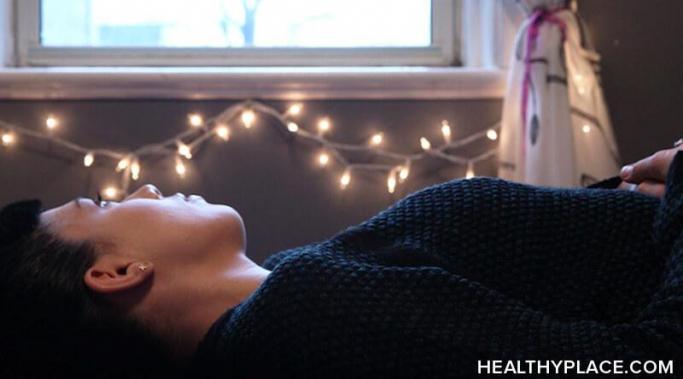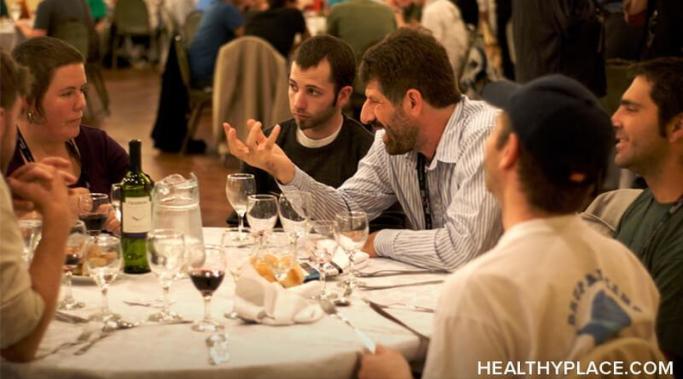People who have strange dreams can worry that strange dreams and mental health are related, when in fact they may not be. Strange dreams happen for neurotypical people as well as those with mental illness, and these dreams often mean nothing at all.
Living a Blissful Life
We all experience anxiety from time to time, and relieving anxiety can be tricky. Some commonly used methods to relieve anxiety actually make it worse. Other attempts at relief just ignore the underlying problem. To get lasting anxiety relief, we must understand which methods help and which ones perpetuate the problem.
You can use a happiness chart to show yourself progress in your mental health journey. I used to believe that intangible items like emotions could not be empirically measured. However, after using a depression tracking application (or "app") for several months, I learned that nearly anything can be measured and graphed.
Healthy self-care is such an essential part of mental health, and it seems everyone is striving to up their self-care game. Here's the thing though -- sometimes when we think we are practicing self-care, we are just numbing out. It can be tough to tell the difference, but if you know the signs, you can make sure you are practicing healthy self-care.
I recently began a new meditation practice where I’ve learned that sounds around me have the potential to become meditation help. The first few minutes of the twice-daily exercise consist of pure mindfulness: noticing what each of the senses is experiencing one by one, then all together.
Setting boundaries for yourself is important, although when we talk about setting boundaries we often refer to boundary setting with others. It is essential to say no to others at times and to advocate for our wants and needs in relationships. However, it is just as important to set boundaries for yourself.
While trying to overcome negative thoughts, you may not have simply given in to them. This surprising method of dealing with negative self-talk can be extremely powerful.
Radical acceptance is a term often taught in dialectical behavior therapy. It pulls from Buddhist principles and is the act of fully accepting reality just as it is. I have found that many of the DBT principles are simple in theory but difficult to implement. Radical acceptance is no exception, but there are many benefits of radically accepting things you cannot change.
When faced with a situation where we wish to decline an invitation, many people have trouble saying no. Saying no can seem stressful, so people reluctantly say yes to an invitation instead. This can cause resentment on both ends of the invitation, since the host takes the acceptance at face value, while the guest is at an undesired event. Saying no to an invitation creates an alternative with many benefits.
One way to improve your emotional health is to learn how to stay in your window of tolerance. Imagine your mind like a picture window where the view outside represents all the emotions and situations you can handle skillfully. If you have a large picture window in your mind, there is a wide range of stressors you can effectively manage. If your window is very small, it's pretty easy to fall into overwhelm or complete shutdown. This is why understanding and expanding your window of tolerance can significantly improve your emotional health.









